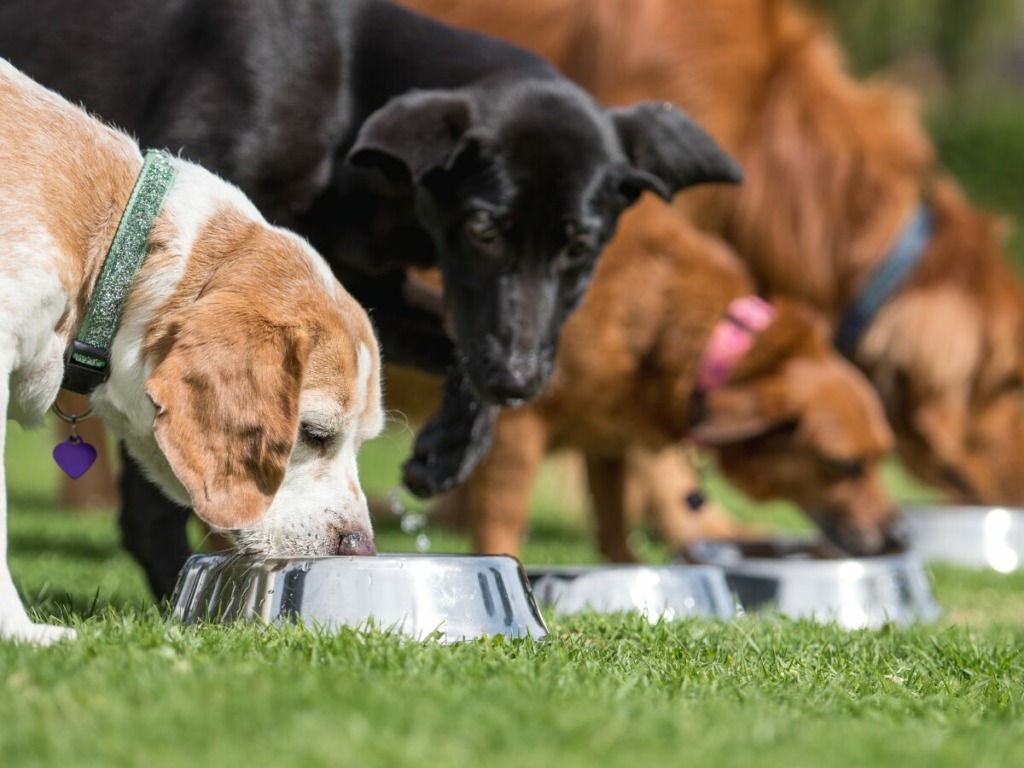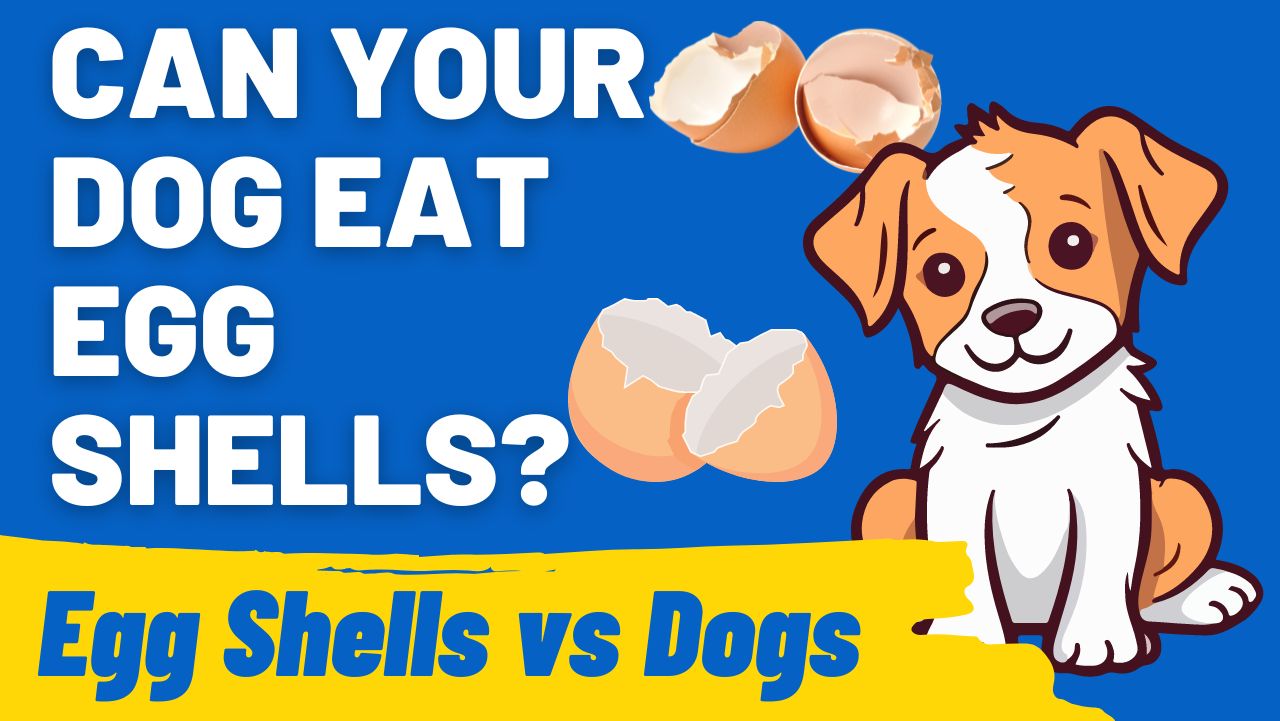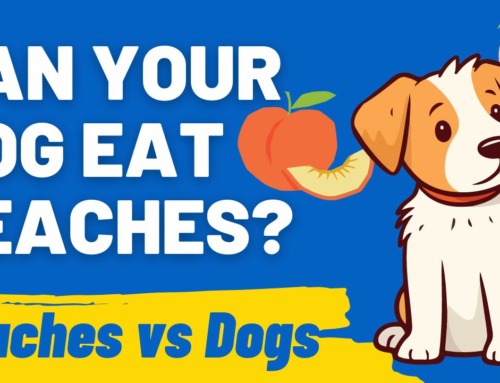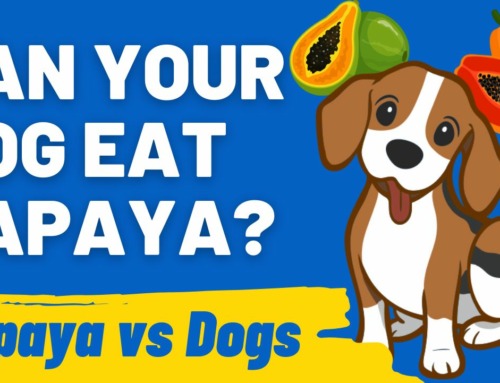As a passionate dog owner and experienced breeder, I understand the importance of providing our beloved canine companions with a balanced and nutritious diet. That’s why I’ve delved into the intriguing debate surrounding egg shells as a potential addition to our furry friends’ meals.
Have you ever wondered if dogs can eat egg shells? Well, let me share a personal story that sparked my curiosity.
One morning, as I was preparing breakfast for my playful Cavoodle named Bobby, I found myself pondering whether those seemingly insignificant egg shells could actually benefit his health.
Intrigued by this question, I embarked on a journey to uncover the truth. And what I discovered left me both fascinated and divided.
Some experts argue that egg shells are a calcium-rich snack, perfect for supporting bone health in dogs.
However, others express concerns about safety and digestion.
In this comprehensive article, I aim to shed light on the pros and cons of incorporating egg shells into your dog’s diet.
So, if you’re eager to crack open the truth about feeding egg shells to your four-legged companion, join me on this enlightening journey.
Together, we’ll unravel the mysteries and ensure that our furry friends receive the best care possible.
What Are the Benefits of Egg Shells for Dogs?
Wondering if can dogs eat egg shells and what the fuss is all about? Let’s crack into it! Egg shells are more than just a crunchy treat. They’re a nutritional powerhouse for your pooch.
Here’s a peep at the benefits:
- Calcium Galore: Just like humans, dogs need calcium for strong bones and teeth. Egg shells are loaded with this essential mineral. It’s a natural and cost-effective supplement.
- Joint Health: For dogs with joint issues, calcium is vital. Egg shells can be a great addition to their diet to support joint health.
- Protein Punch: Egg shells contain protein. While they’re not a major source, every bit counts in maintaining your dog’s muscle health.
- Easy Digestion: Contrary to popular belief, egg shells are easily digestible for most dogs. They break down in the stomach without causing harm.
- Eco-Friendly Option: By using egg shells, you’re not only benefiting your dog but also reducing waste. It’s a win-win!
So, can dogs eat egg shells? Absolutely, and they can reap some serious health benefits from these crunchy shells.
Are Egg Shells Safe for Dogs?
Are egg shells safe for dogs? This question pops up a lot among dog owners.
When thinking about egg shell calcium for dogs, it’s crucial to consider safety. Yes, dogs can eat egg shells, but let’s not jump the gun just yet.
Firstly, the shells must be clean and free from any egg white or yolk remnants.
Raw egg remnants can harbor bacteria like salmonella, posing a health risk to your furry pal. Always wash the shells thoroughly.
Secondly, the preparation matters. Grinding the egg shells into a fine powder is the way to go. This makes it easier for your dog to digest and absorb the calcium.
Large, sharp pieces can be a choking hazard or cause digestive tract irritation. So, think powder, not chunks!
Egg shell calcium for dogs is great, but balance is key. Too much calcium can lead to health issues, especially in puppies and smaller breeds.
It’s always best to consult your vet to determine the right amount for your dog’s size and dietary needs.
Keep these tips in mind to ensure your dog enjoys the benefits safely!
Preparing Egg Shells for Your Dog’s Diet

So, you’re convinced and want to know how to prepare egg shells for dogs? It’s simpler than you might think!
Here’s your quick guide:
- Wash Them Clean: Start by thoroughly washing the egg shells to remove any raw egg residue.
- Dry Them Out: Either leave the shells to air dry or pop them in the oven for a quick bake. This step helps to kill off any lingering bacteria.
- Grinding Time: Use a grinder or food processor to turn the shells into a fine powder. This is crucial for easy digestion.
- Storage: Keep your egg shell powder for dogs in an airtight container. It stays fresh and handy for adding to your dog’s meals.
- Serving Suggestions: Sprinkle the egg shell powder on your dog’s regular food, or for a fun twist, use a treat dispensing toy, like Hide’n’Treat. Mix the powder with their favorite food for an enjoyable and nutritious feeding experience.
Ground Egg Shells vs Whole Egg Shells
When it comes to adding egg shells to your dog’s diet, the form matters.
Ground egg shells for dogs are the go-to choice. Why? Because grinding the shells into a fine powder, or egg shell powder for dogs, makes it easy for your furry friend to digest and absorb the calcium.
Whole or crushed egg shells in dog food, on the other hand, can be a bit risky. They might be too harsh for your dog’s digestive system and can even pose a choking hazard.
So, while the idea of just tossing in a whole shell might seem easier, it’s not the safest bet for your pup. Stick to the powder form for a safer and healthier option.
The Nutritional Impact of Egg Shells on Dog Food
When it comes to egg shells and dog nutrition, these tiny fragments can make a big impact.
Here’s how egg shells boost your furry friend’s diet:
- Calcium Boost: Egg shells are primarily made of calcium carbonate, essential for strong bones and teeth. They’re a natural, cost-effective calcium supplement.
- Supports Bone Health: This is particularly beneficial for growing puppies and senior dogs, who need extra bone support.
- Improves Dental Health: Chewing on egg shell supplements for dogs can help reduce plaque and keep teeth clean.
- Easily Absorbed: The calcium in egg shells is more easily absorbed compared to synthetic supplements, making them a great choice for homemade dog food with egg shells.
Incorporating egg shells into your dog’s diet can be a simple yet effective way to enhance their overall health. Always remember to consult your vet for the right serving size!
Egg Shells for Different Ages and Breeds

When it comes to feeding egg shells to dogs of various ages and breeds, there are a few things to keep in mind:
- Puppies: Can puppies eat egg shells? Yes, but in moderation. Puppies need calcium for their growing bones, but too much can lead to developmental issues.
- Adult Dogs: Most adult dogs can safely enjoy egg shell supplements, enhancing their diet with extra calcium and teeth-cleaning benefits.
- Senior Dogs: Older dogs, especially those with joint issues, can benefit from the calcium in egg shells. It helps maintain bone health as they age.
- Small Breeds vs. Large Breeds: Small breed dogs may need less egg shell powder compared to larger breeds due to their size and dietary requirements.
- Dog Allergies and Egg Shells: While rare, some dogs might be allergic to eggs. If you notice any allergic reactions, it’s best to stop and consult your vet.
Remember, every dog is unique! Always tailor the amount of egg shell powder to your dog’s specific nutritional needs.
Interested to know what our take about dogs and cherries? Read our new post Cherries and Pups: Can Dogs Eat Cherries Without Risk?
Expert Opinions: What Veterinarians Say About Egg Shells
In the conversation about egg shells in canine diets, veterinarian advice on egg shells is clear – moderation and balance are essential.
These calcium-rich shells are fantastic for bone health, but they’re not the sole answer to dietary needs. Vets particularly urge moderation for puppies or dogs with specific health conditions.
When it comes to preparation, the veterinary consensus is firm.
Grinding egg shells into a fine powder is the recommended approach. This method ensures the supplement is easily digestible and safe, making it a budget-friendly and natural option for boosting calcium.
However, it’s crucial not to let this supplement overshadow the importance of a comprehensive diet.
Vets advise using egg shells as an addition to, not the core of, your dog’s diet. They emphasize the need to integrate this supplement thoughtfully, considering each dog’s unique dietary requirements.
Seeking veterinarian advice on egg shells before regular inclusion in your dog’s meals is wise, ensuring the right balance for your furry friend’s health and well-being.
Egg Shells and Dog Digestive Health
When it comes to digestive health and egg shells, it’s a bit like navigating a dog park – there are benefits, but you need to watch your step.
Crushed egg shells in dog food can be a nutritional bonus, but how they’re prepared matters a lot for your dog’s tummy.
Ground into a fine powder? That’s the best way to go. It’s gentle on their digestive system and avoids any sharp edges that could cause trouble.
Whole or large pieces of egg shell, however, might be a no-no. They can be tough on a dog’s stomach and even lead to discomfort or digestive issues.
Remember, every dog’s digestive health is unique. While most can handle egg shells just fine, others might have a sensitive stomach.
Introduce egg shells gradually to see how your furry friend handles them. And as always, keep your vet in the loop. They know your pup’s digestive health best and can guide you on the right path.
Conclusion: To Crunch or Not to Crunch?
So, can dogs eat egg shells? The consensus? They’re a yes for a crunchy, calcium-packed treat, but with some guidelines.
Remember, grind those shells to a fine powder for safe digestion, and always think of them as a supplement, not the main meal.
Each pup is different, so introduce egg shells slowly and watch how your doggo reacts. And hey, when in doubt, a quick chat with your vet can clear the path. After all, it’s about keeping those tails wagging and those bones strong!
Discover Fun and Health with HoundGames!
As you explore adding nutritious egg shell supplements to their diet, why not make it fun too? Check out HoundGames, where we blend nutrition with fun.
Our engaging toys, designed to enrich your dog’s life, go beyond play. They’re tools for bonding, health, and happiness.
Discover more expert tips and resources on canine care at HoundGames, where we’re dedicated to fostering joyful, healthy relationships between dogs and their owners.
Let’s make every mealtime a playful adventure!




